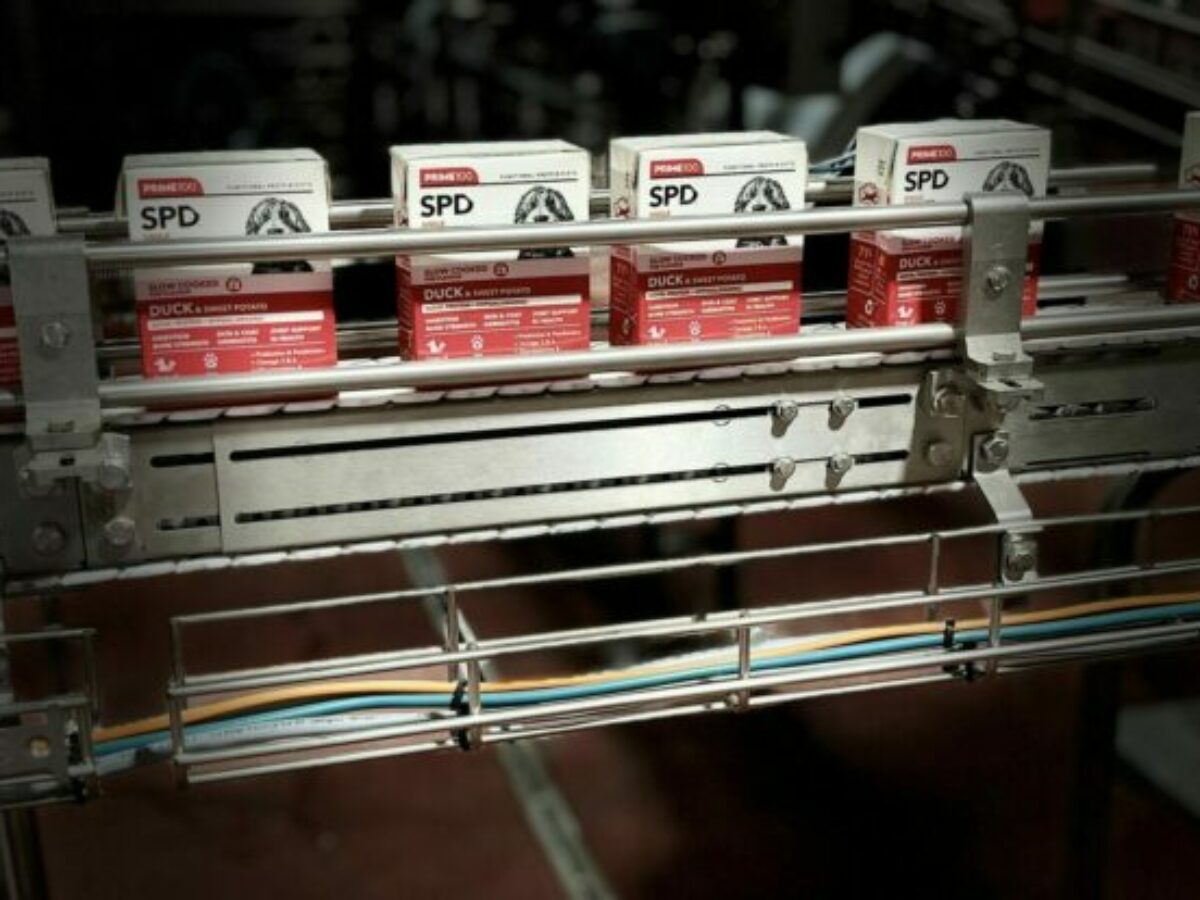Manufacturing news briefs — stories you might have missed

Prime100 launches new packaged pet food product
Melbourne-based pet food company Prime100 has partnered with Tetra Pak to launch a premium dog food product line in cartons (pictured) with “the lowest CO2 footprint in the market”. The new SPD (Single Protein Diet) product range is available in seven flavours and packaged in Tetra Recart. Products for the pet food market are a first for the packaging company. According to a statement from Tetra Pak, the partnership “signifies an innovative approach to pet nutrition and packaging in Australia – a booming pet food market” where citizens spend an estimated $33 billion on pet services and products annually. “This collaboration showcases our commitment to providing the best pet nutrition while prioritising sustainability,” said Jason Gray, Chief Executive Officer of Prime100.
Monash awarded support for grid stabilisation research
Electrical engineering researchers from Monash University have been awarded half a million dollars in funding from the Australian Renewable Energy Agency to investigate and develop a tool to predict and manage instability in the national energy grid. According to a statement from the university, implementation of the tool — suitable for use by the Australian Energy Market Operator (AEMO) and Transmission Network Service Providers (TNSPs) — is expected to further boost connection to the national grid of renewable energy sources including solar and wind-generated electricity. The research will be through the Monash Grid Innovation Hub, led by Associate Professor Behrooz Bahrani. “With the support of ARENA, this groundbreaking project aims to address current energy flow challenges and pave the way for a robust, reliable and renewable future for our energy infrastructure,” said Bahrani.
ACCC warns on “rare but serious” fire hazards associated with batteries
The Australian Competition and Consumer Commission has warned consumers about “rare but serious fire hazards from lithium-ion batteries” and advising users to choose, check, use and dispose of these safely. Incidents around rechargeable lithium-ion batteries are rare though seem to be increasing and are serious when they occur, it said, with the possibility of batteries overheating or exploding if used, charged or disposed of incorrectly or if damaged. The ACCC said it has received 231 product safety reports relating to lithium-ion batteries in the past five years. “Our report makes recommendations to better protect consumers, and includes practical advice to reduce the risks associated with these batteries,” ACCC Deputy Chair Catriona Lowe said. “Consumers should avoid mixing and matching chargers, unplug products when fully charged and charge batteries in a cool, dry place and away from combustible materials like beds, lounges or carpet.”
AFGC welcomes essential industry code review
Peak body the Australian Food and Grocery Council has welcomed the announcement from assistant
minister for competition Dr Andrew Leigh, of the second review of the Food and Grocery Code of Conduct (the Code). “While the relationship between suppliers and retailers has improved since the Code came into effect, this review comes at a time of increased pressure on margins, strained supply chains and follows years of industry disruption,” said AFGC CEO, Tanya Barden. As a voluntary code prescribed under the Competition and Consumer Act 2010, the Code was introduced to improve standards of business behaviour in the food and grocery sector, including the conduct of retailers and wholesalers towards suppliers. “In some cases, manufacturers can be entirely reliant on one retailer as a customer,” said Barden. “Having the Code to outline how both parties are to engage on things like price and listing of products is incredibly important.”
Graphene additive shows promise in cement production trials
First Graphene has announced positive results from the first phase of its graphene-enhanced cement trials in the United Kingdom. Approximately 600 tonnes of graphene-enhanced cement was produced at the UK's largest
cement processing facility, operated by Breedon Cement. Initial results shoed an up to 10 per cent increase in early-stage cement compressive strength compared to an equivalent control, said First Graphene in an ASX statement. The trials were conducted on a CEM II cement, which has a reduced clinker factor compared to CEM I. The trial also demonstrated that graphene-enhanced cement can be supplied using existing infrastructure and facilities and, when used in construction settings, no additional equipment or training is required for the applicators. Managing Director Michael Bell said: “This initial test of applying PureGRAPH-enhanced cement at an industrial scale has produced very encouraging and positive results.”
Pre-registration open for Big Dipper challenge
One of two consortiums vying to build Australia's first lunar rover, ELO2, has put a call out for pre-registrations for its Big Dipper Lunar Regolith Acquisition Challenge. According to a statement at ELO2's website, “There are no minimum requirements or skills to begin this challenge – it is open to all who have an idea and are ready to learn new skills!” In Phase 1 of the challenge, the mission is to design a device capable of collecting and depositing lunar regolith (moon rock and dust), specifically crafted for an Australian-designed rover. The second phase “will provide the opportunity to synthesise insights gained from Phase 1's winning designs, to create a set of tangible design recommendations for future lunar rover implementations.” The challenge is to mark World Space Week, offers a chance to shape the design of Australia’s FIRST lunar rover, and comes with a chance to “win a share of $15,000!”. More information is available here.
Picture: supplied
@aumanufacturing Sections
Analysis and Commentary Awards casino reviews Defence Gambling Manufacturing News Online Casino Podcast Technology Videos





